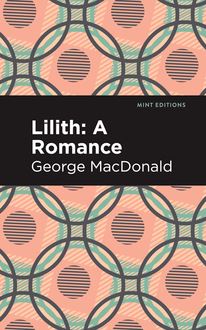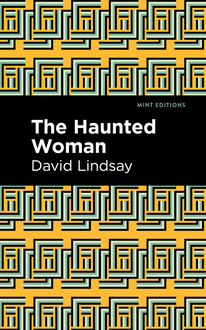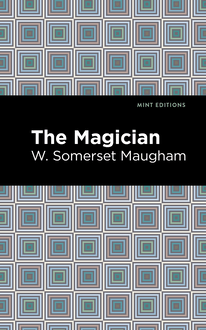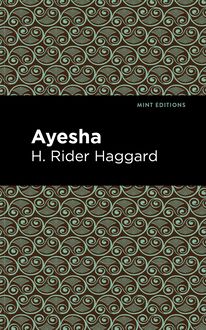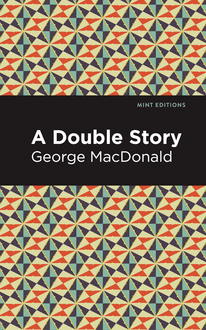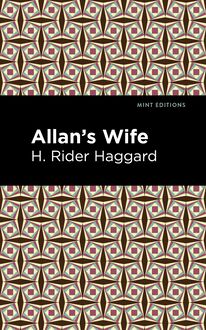-
 Univers
Univers
-
 Ebooks
Ebooks
-
 Livres audio
Livres audio
-
 Presse
Presse
-
 Podcasts
Podcasts
-
 BD
BD
-
 Documents
Documents
-
- Cours
- Révisions
- Ressources pédagogiques
- Sciences de l’éducation
- Manuels scolaires
- Langues
- Travaux de classe
- Annales de BEP
- Etudes supérieures
- Maternelle et primaire
- Fiches de lecture
- Orientation scolaire
- Méthodologie
- Corrigés de devoir
- Annales d’examens et concours
- Annales du bac
- Annales du brevet
- Rapports de stage
La lecture à portée de main
Vous pourrez modifier la taille du texte de cet ouvrage
Découvre YouScribe en t'inscrivant gratuitement
Je m'inscrisDécouvre YouScribe en t'inscrivant gratuitement
Je m'inscrisEn savoir plus
Vous pourrez modifier la taille du texte de cet ouvrage
En savoir plus

Description
A library owner, guided by a spirit, travels through a magic mirror where he visits a mystical realm full of supernatural figures and dormant souls. Lilith: A Romance is a dark fantasy fueled by symbolism and moral allegories.
After Mr. Vane inherits his parents’ estate, he encounters a mysterious figure in its library. The entity is called Raven, and leads him to an old mirror, which offers a pathway to another world. Mr. Vane engages and quickly discovers a new land filled with eccentric characters and creatures. He meets the beautiful but dangerous Lilith, who shares a complicated history with Raven. Through this venture, Mr. Vane is unknowingly pulled into a spiritual and familial battle.
Lilith: A Romance is a fantasy novel that explores life, love, death and redemption. It shows how a spiritual awakening can affect every aspect of one’s life. The reader must attempt to separate good from evil as well as dreams from reality.
With an eye-catching new cover, and professionally typeset manuscript, this edition of Lilith: A Romance is both modern and readable.
Sujets
Informations
| Publié par | Mint Editions |
| Date de parution | 02 mars 2021 |
| Nombre de lectures | 0 |
| EAN13 | 9781513277929 |
| Langue | English |
| Poids de l'ouvrage | 1 Mo |
Informations légales : prix de location à la page 0,0500€. Cette information est donnée uniquement à titre indicatif conformément à la législation en vigueur.
Extrait
Lilith
A Romance
George MacDonald
Lilith: A Romance was first published in 1895.
This edition published by Mint Editions 2021.
ISBN 9781513277516 | E-ISBN 9781513277929
Published by Mint Editions ®
minteditionbooks.com
Publishing Director: Jennifer Newens
Design & Production: Rachel Lopez Metzger
Project Manager: Micaela Clark
Typesetting: Westchester Publishing Services
C ONTENTS I. T HE L IBRARY II. T HE M IRROR III. T HE R AVEN IV. S OMEWHERE OR N OWHERE ? V. T HE O LD C HURCH VI. T HE S EXTON ’ S C OTTAGE VII. T HE C EMETERY VIII. M Y F ATHER ’ S M ANUSCRIPT IX. I R EPENT X. T HE B AD B URROW XI. T HE E VIL W OOD XII. F RIENDS AND F OES XIII. T HE L ITTLE O NES XIV. A C RISIS XV. A S TRANGE H OSTESS XVI. A G RUESOME D ANCE XVII. A G ROTESQUE T RAGEDY XVIII. D EAD OR A LIVE ? XIX. T HE W HITE L EECH XX. G ONE !—B UT H OW ? XXI. T HE F UGITIVE M OTHER XXII. B ULIKA XXIII. A W OMAN OF B ULIKA XXIV. T HE W HITE L EOPARDESS XXV. T HE P RINCESS XXVI. A B ATTLE R OYAL XXVII. T HE S ILENT F OUNTAIN XXVIII. I AM S ILENCED XXIX. T HE P ERSIAN C AT XXX. A DAM E XPLAINS XXXI. T HE S EXTON ’ S O LD H ORSE XXXII. T HE L OVERS AND THE B AGS XXXIII. L ONA ’ S N ARRATIVE XXXIV. P REPARATION XXXV. T HE L ITTLE O NES IN B ULIKA XXXVI. M OTHER AND D AUGHTER XXXVII. T HE S HADOW XXXVIII. T O THE H OUSE OF B ITTERNESS XXXIX. T HAT N IGHT XL. T HE H OUSE OF D EATH XLI. I AM S ENT XLII. I S LEEP THE S LEEP XLIII. T HE D REAMS THAT C AME XLIV. T HE W AKING XLV. T HE J OURNEY H OME XLVI. T HE C ITY XLVII. T HE “E NDLESS E NDING ”
I took a walk on Spaulding’s Farm the other afternoon. I saw the setting sun lighting up the opposite side of a stately pine wood. Its golden rays straggled into the aisles of the wood as into some noble hall. I was impressed as if some ancient and altogether admirable and shining family had settled there in that part of the land called Concord, unknown to me,—to whom the sun was servant,—who had not gone into society in the village,—who had not been called on. I saw their park, their pleasure-ground, beyond through the wood, in Spaulding’s cranberry-meadow. The pines furnished them with gables as they grew. Their house was not obvious to vision; their trees grew through it. I do not know whether I heard the sounds of a suppressed hilarity or not. They seemed to recline on the sunbeams. They have sons and daughters. They are quite well. The farmer’s cart-path, which leads directly through their hall, does not in the least put them out,—as the muddy bottom of a pool is sometimes seen through the reflected skies. They never heard of Spaulding, and do not know that he is their neighbor,—notwithstanding I heard him whistle as he drove his team through the house. Nothing can equal the serenity of their lives. Their coat of arms is simply a lichen. I saw it painted on the pines and oaks. Their attics were in the tops of the trees. They are of no politics. There was no noise of labor. I did not perceive that they were weaving or spinning. Yet I did detect, when the wind lulled and hearing was done away, the finest imaginable sweet musical hum,—as of a distant hive in May, which perchance was the sound of their thinking. They had no idle thoughts, and no one without could see their work, for their industry was not as in knots and excrescences embayed.
But I find it difficult to remember them. They fade irrevocably out of my mind even now while I speak and endeavor to recall them, and recollect myself. It is only after a long and serious effort to recollect my best thoughts that I become again aware of their cohabitancy. If it were not for such families as this, I think I should move out of Concord.
Thoreau: “ W ALKING .”
I
T HE L IBRARY
I had just finished my studies at Oxford, and was taking a brief holiday from work before assuming definitely the management of the estate. My father died when I was yet a child; my mother followed him within a year; and I was nearly as much alone in the world as a man might find himself.
I had made little acquaintance with the history of my ancestors. Almost the only thing I knew concerning them was, that a notable number of them had been given to study. I had myself so far inherited the tendency as to devote a good deal of my time, though, I confess, after a somewhat desultory fashion, to the physical sciences. It was chiefly the wonder they woke that drew me. I was constantly seeing, and on the outlook to see, strange analogies, not only between the facts of different sciences of the same order, or between physical and metaphysical facts, but between physical hypotheses and suggestions glimmering out of the metaphysical dreams into which I was in the habit of falling. I was at the same time much given to a premature indulgence of the impulse to turn hypothesis into theory. Of my mental peculiarities there is no occasion to say more.
The house as well as the family was of some antiquity, but no description of it is necessary to the understanding of my narrative. It contained a fine library, whose growth began before the invention of printing, and had continued to my own time, greatly influenced, of course, by changes of taste and pursuit. Nothing surely can more impress upon a man the transitory nature of possession than his succeeding to an ancient property! Like a moving panorama mine has passed from before many eyes, and is now slowly flitting from before my own.
The library, although duly considered in many alterations of the house and additions to it, had nevertheless, like an encroaching state, absorbed one room after another until it occupied the greater part of the ground floor. Its chief room was large, and the walls of it were covered with books almost to the ceiling; the rooms into which it overflowed were of various sizes and shapes, and communicated in modes as various—by doors, by open arches, by short passages, by steps up and steps down.
In the great room I mainly spent my time, reading books of science, old as well as new; for the history of the human mind in relation to supposed knowledge was what most of all interested me. Ptolemy, Dante, the two Bacons, and Boyle were even more to me than Darwin or Maxwell, as so much nearer the vanished van breaking into the dark of ignorance.
In the evening of a gloomy day of August I was sitting in my usual place, my back to one of the windows, reading. It had rained the greater part of the morning and afternoon, but just as the sun was setting, the clouds parted in front of him, and he shone into the room. I rose and looked out of the window. In the centre of the great lawn the feathering top of the fountain column was filled with his red glory. I turned to resume my seat, when my eye was caught by the same glory on the one picture in the room—a portrait, in a sort of niche or little shrine sunk for it in the expanse of book-filled shelves. I knew it as the likeness of one of my ancestors, but had never even wondered why it hung there alone, and not in the gallery, or one of the great rooms, among the other family portraits. The direct sunlight brought out the painting wonderfully; for the first time I seemed to see it, and for the first time it seemed to respond to my look. With my eyes full of the light reflected from it, something, I cannot tell what, made me turn and cast a glance to the farther end of the room, when I saw, or seemed to see, a tall figure reaching up a hand to a bookshelf. The next instant, my vision apparently rectified by the comparative dusk, I saw no one, and concluded that my optic nerves had been momentarily affected from within.
I resumed my reading, and would doubtless have forgotten the vague, evanescent impression, had it not been that, having occasion a moment after to consult a certain volume, I found but a gap in the row where it ought to have stood, and the same instant remembered that just there I had seen, or fancied I saw, the old man in search of a book. I looked all about the spot but in vain. The next morning, however, there it was, just where I had thought to find it! I knew of no one in the house likely to be interested in such a book.
Three days after, another and yet odder thing took place.
In one of the walls was the low, narrow door of a closet, containing some of the oldest and rarest of the books. It was a very thick door, with a projecting frame, and it had been the fancy of some ancestor to cross it with shallow shelves, filled with book-backs only. The harmless trick may be excused by the fact that the titles on the sham backs were either humorously original, or those of books lost beyond hope of recovery. I had a great liking for the masked door.
To complete the illusion of it, some inventive workman apparently had shoved in, on the top of one of the rows, a part of a volume thin enough to lie between it and the bottom of the next shelf: he had cut away diagonally a considerable portion, and fixed the remnant with one of its open corners projecting beyond the book-backs. The binding of the mutilated volume was limp vellum, and one could open the corner far enough to see that it was manuscript upon parchment.
Happening, as I sat reading, to raise my eyes from the page, my glance fell upon this door, and at once I saw that the book described, if book it may be called, was gone. Angrier than any worth I knew in it justified, I rang the bell, and the butler appeared. When I asked him if he knew what had befallen it, he turned pale, and assured me he did not. I could less easily doubt his word than my own eyes, for he had been all his life in the family, and a more faithful servant never lived. He left on me the impression, nevertheless, that he could have said so
-
 Univers
Univers
-
 Ebooks
Ebooks
-
 Livres audio
Livres audio
-
 Presse
Presse
-
 Podcasts
Podcasts
-
 BD
BD
-
 Documents
Documents
-
Jeunesse
-
Littérature
-
Ressources professionnelles
-
Santé et bien-être
-
Savoirs
-
Education
-
Loisirs et hobbies
-
Art, musique et cinéma
-
Actualité et débat de société
-
Jeunesse
-
Littérature
-
Ressources professionnelles
-
Santé et bien-être
-
Savoirs
-
Education
-
Loisirs et hobbies
-
Art, musique et cinéma
-
Actualité et débat de société
-
Actualités
-
Lifestyle
-
Presse jeunesse
-
Presse professionnelle
-
Pratique
-
Presse sportive
-
Presse internationale
-
Culture & Médias
-
Action et Aventures
-
Science-fiction et Fantasy
-
Société
-
Jeunesse
-
Littérature
-
Ressources professionnelles
-
Santé et bien-être
-
Savoirs
-
Education
-
Loisirs et hobbies
-
Art, musique et cinéma
-
Actualité et débat de société
- Cours
- Révisions
- Ressources pédagogiques
- Sciences de l’éducation
- Manuels scolaires
- Langues
- Travaux de classe
- Annales de BEP
- Etudes supérieures
- Maternelle et primaire
- Fiches de lecture
- Orientation scolaire
- Méthodologie
- Corrigés de devoir
- Annales d’examens et concours
- Annales du bac
- Annales du brevet
- Rapports de stage
